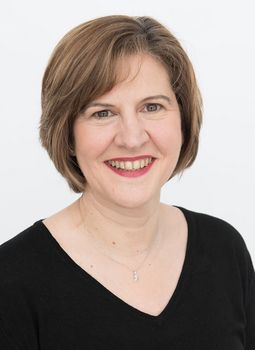Take a look around. It may not always be evident, but all that surrounds us seems to be governed by a universal principle: rhythm.
That applies to everything from the atom with its protons and electrons to the forces governing the cosmos. Consider circadian rhythms, heartbeats, the flow of traffic, music, film, the weather, the seasons, and so on and so forth - the whole cycle of life seems subject to various forms of rhythm.
To reflect on the roots and significance of rhythm, the MIL Campus of the Université de Montréal will be hosting a cross-sector and transdisciplinary discussion on December 5-6 on "The Sources of Rhythm." It will bring together professors and researchers from Montréal's university community who work in a variety of disciplines.
Participants will have a chance to hear from the five scholars behind this remarkable idea, namely, the winners of the 2018 Killam Prize: André Gaudreault, Université de Montréal (humanities), Vladimir Hachinski, Western University (health sciences), Walter Herzog, University of Calgary (Engineering), Janet Werker, University of British Columbia (Social Sciences), and James Pinfold, University of Alberta (natural sciences).
The Killam Prize awarded by the Canada Council for the Arts is one of the most prestigious science prizes in the country.
An "improbable idea"
During a reception following the 2018 Killam Prize award ceremony in Halifax, the five winners had a lively discussion on the subject of rhythm.
"André Gaudreault initiated the exchange by asking his fellow award winners what fascinated them about their field of study," explained Marie-Josée Hébert, the Université de Montréal's Vice-Rector, Research, Discovery, Creativity and Innovation. "The idea of rhythm emerged as a common thread among disciplines that seem, at first glance, quite disparate."
Having been privy to this discussion, Marie-Josée Hébert and Tara Lapointe, Director, Outreach and Business Development, Canada Council for the Arts, pondered the possibility of organizing a series of talks on the subject while they were sharing a taxi at the end of the evening.
"When I returned to Montréal I broached this improbable idea with André Gaudreault, who took the ball and ran with it," continued Hébert. "Together with Julie Carrier, Associate Vice-Rector, Research and Academic Affairs, he organized a series of preparatory meetings at the Université de Montréal last May."
For scholars and students interested in rhythm
The cross-sector talks on December 5-6 will be organized in cooperation with the CinéMédias laboratory founded by Professor Gaudreault and directed by Santiago Hidalgo, as well as with the Université de Montréal's Innovation laboratory.
The meetings are open to Montréal university professors, researchers and students who wish to explore the notion of rhythm in greater depth and who are interested in cross-sector research and sharing ideas and knowledge across disciplines.
"This second encounter is designed to allow scholars to get acquainted and discuss their research issues, with a view to fostering future cooperation," Hébert said. "The idea, moreover, is to encourage them to transcend their disciplinary boundaries and seize opportunities that might seem, at first sight, improbable."
Reminder
What: Cross-sector discussions on "the Sources of Rhythm"
When: December 5-6, 2019
Where: Amphitheatre 3502, MIL Campus, Université de Montréal
Who: Professors, researchers and students from Montréal universities







